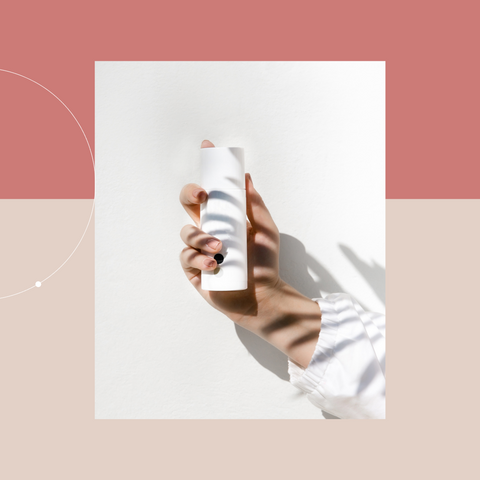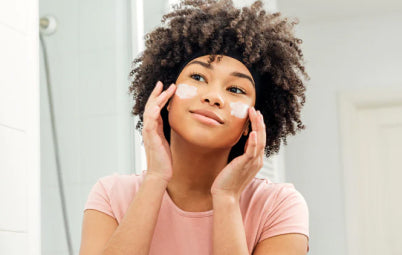Curious about growth factors and what they could do for your skin? We’re pulling back the curtain on this popular skincare ingredient so you have the scoop on everything from potential growth factor side effects to skin benefits, and more.
At Face Dr, we aim to give you unbiased advice on the products you are considering, so if you’ve been wondering ‘are growth factors safe?’, or who might win when it comes to growth factors vs retinols, we have all the info right here.
Want to get started with growth factors straight away?
Here’s what we’ll cover:
- What are growth factors in skincare?
- Where do they come from?
- What can they do for skin?
- Are growth factors safe, and are there any side effects?
- Who would benefit most from using growth factors?
- Should I use growth factors or retinol?
- Are there any ingredients I shouldn’t use alongside growth factors?
- What products include growth factors?
- Summary: Should I try using growth factors?
What are growth factors in skincare?
Growth factors were discovered in the 1950s by two scientists who went on to later win a Nobel Prize, and they remain fascinating skincare ingredients today, with a buffet of benefits. Growth factors are proteins that exist naturally in our bodies and bind to cell receptors in order to send vital messages.
When it comes to our skin, these receptors are what tell our cells to make more collagen and elastin, which are key factors in keeping skin smooth, firm and youthful looking as they encourage skin to regenerate with new cells.
As we get older, our bodies produce less of these growth factors, so our collagen production and elastin levels dip. This often leads to the typical signs of ageing skin, such as fine lines, wrinkles, and thin, sagging skin.
Where are Growth Factors derived from?

There has been some controversy surrounding the sourcing of growth factors for skincare products over the years, since some brands genetically engineer their products using human or animal growth factors made from donor stem cell samples from bone marrow, skin and fat.
Growth factors can also come from natural sources like plants, so many brands opt for plant-derived growth factors instead. All the growth factor products we prescribe at Face Dr use plant and enzyme derived growth factors.
What can they do for skin?

Growth factors can be incredibly powerful as an anti-ageing ingredient, and some of their many skin benefits include:
- Support for the production of the skin’s natural collagen and elastin
- Improved skin firmness and elasticity
- Improved skin smoothness
- Reduced fine lines, particularly around the eye area
- Reduced deep wrinkles
- Improved skin radiance and overall appearance
- Improved skin dryness
Several studies have found growth factor-based products can greatly improve the overall look and feel of skin. One 12-week clinical trial assessed the effectiveness of these products and saw significant improvements in skin appearance, firmness, elasticity and hydration. Using ultrasound imaging, they were able to find continual increases in dermal and epidermal restructuring as the study progressed.
In another smaller study of 8 participants, 7 out of 8 saw improved texture, fine lines and wrinkles, 4 out of 8 felt their wrinkles improved, and 8 out of 8 felt their skin texture was smoother, so there is plenty of evidence to show the potential benefits of growth factors.
Are growth factors safe, and are there any side effects?

Growth factors used in skincare are largely believed to be safe, however some dermatologists have questioned this due to the lack of studies on their long-term use. Ultimately, growth factors do encourage cells to grow, and while this can be a great thing for ageing skin, it brings up the potential implications of such cell growth.
For example, additional blood vessels could result in unwanted redness. In the earlier mentioned study, 5 out of 8 participants experienced “slight redness” after 1 to 2 days of treatment, so if redness is a particular concern you can speak to your Skin Expert to find out more about growth factors and if they are compatible with your skin type.
Patch tests have been carried out in several studies to determine the potential for irritation, however the trials revealed no sensitivity or irritation from the tested products. Overall, research involving the short-term use of growth factors has produced positive results, but it’s best to speak to your Skin Expert before trying any growth factor products.
Who would benefit most from using growth factors?

Those with ageing skin, and in particular those with thin or crepey skin, particularly around the eye area, could benefit from adding growth factors to their skincare routine.
In addition, those considering using a retinol product may benefit from choosing a growth factor-based product instead, or as well as. Your Skin Expert can advise on the best choice of product for your skin needs and goals.
Should I use growth factors or retinol?
Both growth factors and retinol are known as game-changing anti-ageing ingredients in skincare. Retinol is derived from vitamin A, and can help improve skin ageing by increasing collagen production, evening out skin tone, smoothing skin texture, and giving a fresher, plumper, more youthful appearance.
Growth factors offer similar benefits, so which should you choose? This is where your Skin Expert comes in extremely handy, as they can use their vast experience in skincare to recommend the best combination of products for whatever your skin goals are.
If you’re wondering when it’s best to opt for growth factors instead, our YouTube channel has a great video on the ZO Skin Health eye cream range where our very own Dr Julia discusses who could benefit most from growth factor products.
They can be helpful for those in their 20s or 30s who perhaps do not yet need something as strong as retinol, but would like to enjoy its benefits without the potential reactions it can produce. Also, your Skin Expert may recommend growth factors in addition to retinol, because when used together, they can boost the effectiveness of your retinol products.
“I like to think of Growth Factors as the training wheels for retinol” — Dr Julia, Face Dr
Are there any ingredients I shouldn’t use alongside growth factors?
Sometimes skincare ingredients clash with each other, and this can be the case with growth factors. They can be negatively affected by any sort of acidity, so avoid applying vitamin C or alpha hydroxy acid products to ensure your growth factor products are as effective as they can be on skin.
Always go on the advice of your Skin Expert to ensure you get the most out of everything in your skincare routine.
What products include growth factors?
There are many growth factor products available on the market, however, within the Face Dr range we currently have three products containing growth factors:
ZO Growth Factor Serum

This lightweight gel is formulated using a mix of plant and enzyme-derived growth factors that work on all skin types to strengthen skin, support rejuvenation, and future-proof against the typical signs of skin ageing.
ZO Growth Factor Eye Serum

This serum works to improve the appearance of deeper wrinkles around the eye area by smoothing out lines and creases. Its cooling metal applicator doubles as a massager to soothe skin and boost the appearance of puffy, tired eyes while removing any blood pigments that can lead to dark circles. You can learn more about ZO Growth Factor Eye Serum on our YouTube channel.
Summary: Should I try using growth factors?

Deciding to use a particular ingredient or skincare product depends on many factors such as your skin history, irritations and allergies, skin goals, and more. Growth factors could be worth exploring if you are looking to pre-empt protection against the typical signs of skin ageing, or if you already have ageing, thinner skin and would like to maximise your overall skin health for an improved skin look and feel.
It’s best to speak to one of our Skin Experts to find out if growth factors could be beneficial for you. Remember, you can book in for a brief chat for free, where your Skin Expert will offer supportive, unbiased advice to bring you closer to the skin you’ve always wanted.
Want to read more? Click the blog posts below:











